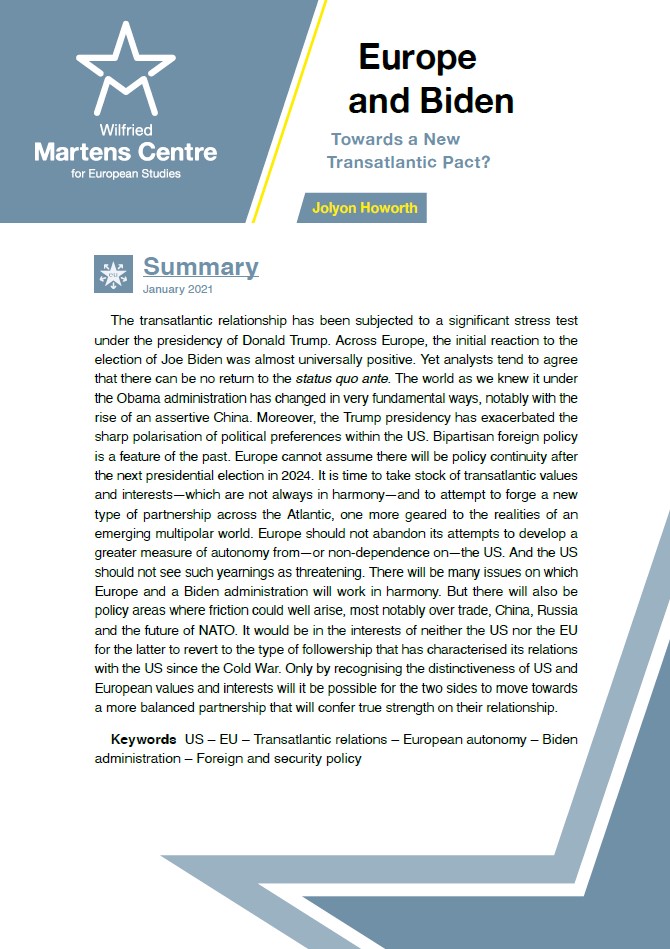Europe and Biden: Towards a New Transatlantic Pact?
20 January 2021
The transatlantic relationship has been subjected to a significant stress test under the presidency of Donald Trump. Across Europe, the initial reaction to the election of Joe Biden was almost universally positive. Yet analysts tend to agree that there can be no return to the status quo ante. The world as we knew it under the Obama administration has changed in very fundamental ways, notably with the rise of an assertive China.
Moreover, the Trump presidency has exacerbated the sharp polarisation of political preferences within the US. Bipartisan foreign policy is a feature of the past. Europe cannot assume there will be policy continuity after the next presidential election in 2024. It is time to take stock of transatlantic values and interests—which are not always in harmony—and to attempt to forge a new type of partnership across the Atlantic, one more geared to the realities of an emerging multipolar world.
Europe should not abandon its attempts to develop a greater measure of autonomy from—or non-dependence on—the US. And the US should not see such yearnings as threatening. There will be many issues on which Europe and a Biden administration will work in harmony.
But there will also be policy areas where friction could well arise, most notably over trade, China, Russia and the future of NATO. It would be in the interests of neither the US nor the EU for the latter to revert to the type of followership that has characterised its relations with the US since the Cold War. Only by recognising the distinctiveness of US and European values and interests will it be possible for the two sides to move towards a more balanced partnership that will confer true strength on their relationship.
ENJOYING THIS CONTENT
